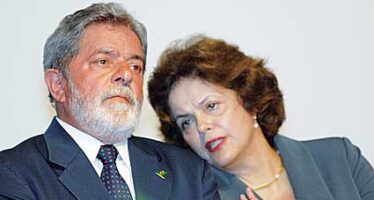Pakistan’s Labyrinth of Terror
![]()
International Jihadists Use Karachi as Hub
By Susanne Koelbl in Karachi, Pakistan
Karachi is the pulsating heart of Pakistan, but the city of 18 million is descending into a maelstrom of violence. While NATO uses the port to support its war in Afghanistan, international jihadism has established strongholds in the metropolis’s slums and suburbs.
The circle had to be closed with blood, in order to wipe out the disgrace of the previous day. That’s the way of life here — the way of life in Karachi.
The six men were heavily armed, and yet they still managed to get through all the checkpoints and reach Club Road in the red zone, a highly secured district in the heart of the city. The head of the provincial government has his official residence here, not far from the American consulate, two luxury hotels and the police headquarters, where the office of the young inspector Omar Shahid is located. As the head of the anti-extremism unit, Shahid was at the top of the attackers’ hit list.
The terrorists started shooting at the entrance to the police station. For 10 minutes, they fired at the guards, who returned their fire, until a vehicle packed with 1,000 kilograms (2,200 lbs.) of explosives rammed the gate of the police station. The massive explosion destroyed the three-story building occupied by the counterterrorism division and set off a firestorm.
At least 20 people, including the suicide attackers, died on the evening of Nov. 11. Some 120 police officers, residents and passersby lay bleeding under the wreckage, as well as an unknown number of members of the extremist group Lashkar-e-Jhangvi who had already been in custody at the police station.
It was a retaliatory attack committed by al-Qaida’s foot soldiers. On the previous day, a counterterrorism unit had arrested half a dozen of their fellow terrorists.
‘They Are Showing Us that They Are There’
Omar Shahid was supposed to be one of the victims, but he happened to be on duty elsewhere on that evening. He is usually in command of counterterrorism units when they conduct raids against militant Islamists in the backstreets of Karachi neighborhoods like Sohrab Goth or Shershah Market.
“They are showing us that they are there, and that they can strike back,” Shahid says, speaking very calmly. He does not show any visible emotion. Otherwise he would be unable to deal with the situation. His office was destroyed by fire, and many of the people with whom he had been waging this battle for years are now dead.
The 32-year-old police officer has a short haircut and is wearing a white shirt over jeans. He looks athletic and a little too young for the job. Shahid refuses to be photographed for security reasons.
His living room is furnished with upholstered English armchairs and oriental rugs. Abstract paintings hang on the walls. The décor is a reflection of the owner’s personality: a loyal Pakistani citizen with a British accent and a taste for a modern lifestyle.
Shahid studied in London. He believes in justice, and he believes that the eternal cycle of revenge has to be broken. Many people all over the world feel the same way, but not in Karachi.
Parties Have Powerful Militias
In Karachi, politics is conducted with Kalashnikovs. The major parties maintain gangs of thugs and killers to protect their spheres of influence. Armed men dressed in suits stand in front of the heavily guarded headquarters of the Muttahida Quami Movement (MGM). The party represents the Urdu-speaking immigrants who came to Pakistan from the Indian part of British India after partition in 1947. Today they have their own courts and their own security service, representing a parallel system to that of the state’s, according to the police.
The Awami National Party (ANP), which represents the Pashtuns, has also become a powerful force. The two parties accuse one another of constantly inciting violence. Since October, about 100 people have been killed here for political reasons, most of them provincial members of parliament and party officials. The death squads travel on motorcycles and shoot their victims while driving or stab them to death with knives.
The militias are fighting each other for the dominance of individual apartment blocks and streets, for shares of the drug and weapons trade, for votes, for shakedowns or sometimes simply for honor. Even the liberal Pakistan Peoples Party (PPP) of Pakistani President Asif Ali Zardari is supported by its own trigger-happy militia in its stronghold of Lyari, a drab neighborhood of narrow streets near the harbor.
All are perpetrators and victims alike in this megacity of grotesque contradictions. Vastly wealthy families live in their villas, protected by high walls, while the barefoot children of the poorest of the poor play football in the garbage heaps of the rich. Young urbanites like the shrill TV host Ali Saleem, 31, who says he wants to “party, party, party until the end,” crave a freer, Western lifestyle. Meanwhile, in large Koran schools a few blocks away, thousands of students are being indoctrinated into an extreme interpretation of the Koran — and taught to hate the American way of life.
Related Articles
Bin Laden ‘was unarmed’ when shot dead
![]()
CIA chief says a photo showing bin Laden dead will ultimately be released US forces swept through the massive compound, handcuffing
Region in turmoil
![]()
Tunisia, Egypt, Libya, Bahrain: A roundup of the popular protests that have swept the region over the last two months
Primeras impresiones de las elecciones
![]()
Igor Ojeda “Quiero agradecer a Dios por haberme traído hasta aquí”, dijo Dilma Rousseff en sus consideraciones finales del debate




